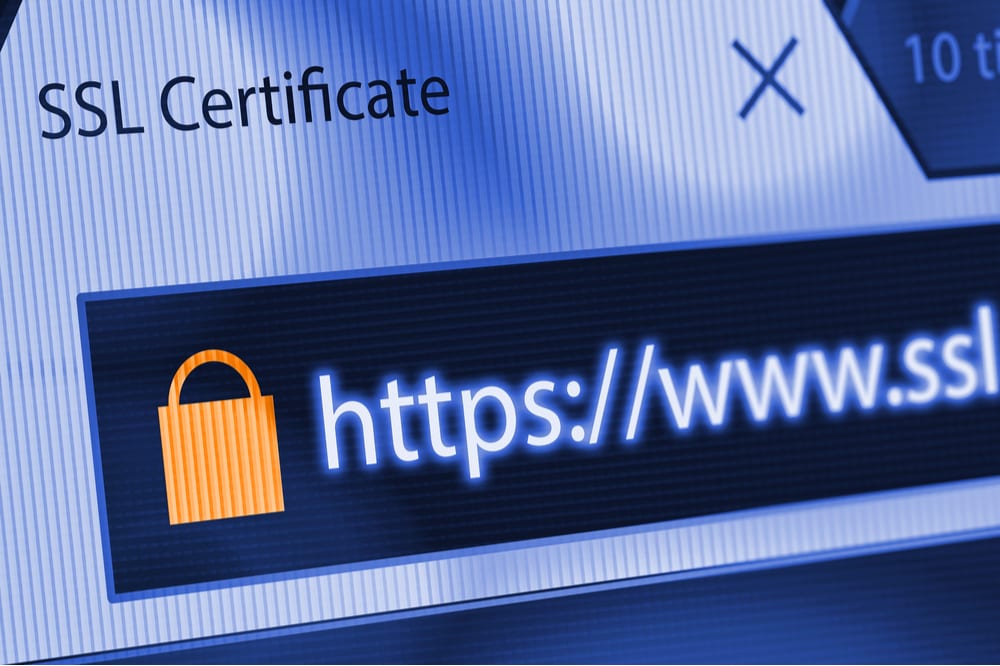SEO Guides, Tips & More!
Learn from Our Experience
Why Google Prefers SSL Certificates
One of the many responsibilities of firm marketers is the requirement to devote time to the firm’s website which includes its design, functionality, content, SEO, data analytics and even its security. With 2019 well under way, so are new requirements and best practices from Google including one of this year’s mandatory requirements which is for websites to have an SSL certificate. If your firm or company website doesn’t currently have a SSL certificate it should be on your short list of website to-dos because if it’s not, Google will take note of this missing factor and consider this variable when determining the site’s overall rank. Beyond this, it’s a quick and easy that any marketer can make (with the assistance of their IT team) to enhance the site’s SEO standing. To help clients, prospects and others understand this subject, FlashPoint has provided key points below.
What is a SSL Certificate and how does it work?
To get geeky for a moment, SSL stands for “Secure Sockets Layer” and it is the online standard in security technology for establishing an encrypted link between a web server and a browser. It ensures that data passed between the web server (where a site is hosted) and the browser (the person who is viewing the site) remains private. Because the internet is such a huge platform for millions of people, Google wants to ensure as many users as possible have a secure experience hence the new requirement. When websites do not utilize SSL Certificates, secure connections cannot be established which means your data will not be digitally connected to a cryptographic key.
(The website SSL.com does a great job of going into greater detail if you want to learn more and get into the nitty gritty)
Wait…What?
Let’s translate this visually. Have a look at the following infographic to simply the process:

The SSL Certificate usually contains the following information:
- Name of the holder
- Serial number and expiration date
- Copy of the certificate holder’s public key
- Digital signature of the certificate-issuing authority
Why are SSL Certificates important?
Some may be questioning whether a SSL is important for their firm and why bothering to get one. Three reasons you should have one include:
- Sensitive Information is Encrypted
When using the internet, the information you send out is passed from computer to computer until it reaches its destination server. This means that any computer in between your computer and the destination server has the ability to see things such as credit card numbers, user names and passwords along with other sensitive data that is not protected. However, when information is protected via encryption, the data you are sending is unreadable to virtually everyone except the server it is meant for. - Protection from Cybercriminals
Many are aware that cybercrime has been on the rise for quite some time. Sources predict that by the year 2021 annual damages will cost the world over $6 trillion. Isn’t the installation of a simple SSL Certificate worth the time and effort vs. the alternative which is stolen data, hacks and liability? - Builds Trust for Your Users and Web Audience
Internet users are becoming more and more savvy and most are familiar with SSL which translates to https://with the “s” indicating a secure site. Not only is that a cue but so is the lock icon to the left of the web address in the browser window. Seeing that lock demonstrates to the user that a well-trusted encryption is in use (see below). As an internet user, I certainly look for those little cues when online.

Some may conclude that a lack of “sensitive data” travels to their website therefore a SSL is not needed. Many accounting and CPA firms use a client portal that is tied into their practice management software. In most cases, these sites are secure on their own, but this doesn’t negate the need to have a SSL certificate on a firm’s website. Since Google wants to ensure they are providing search results that are relevant and secure having this feature on the firm’s website is an essential way to enhance existing domain level SEO efforts.
6 Types of SSL Certificates
According to a super comprehensive blog by the website hosting company liquidweb, there are six main types of SSL certificates. The one you select will be based on several variables. Below ios a brief description of each:
- Extended Validation Certificates (EV SSL)
- Organization Validated Certificates (OV SSL)
- Domain Validated Certificates (DV SSL)
- Wildcard SSL Certificate
- Multi-Domain SSL Certificate (MDC)
- Unified Communications Certificate (UCC)
What does Google Say?
Below is a video excerpt of a Google Webmaster Central chat where John Mueller of Google stated that the search engine doesn’t have a preference about the SSL certificate type used on a domain.
Conclusion
If you currently are not implementing a SSL, be sure to assess what you need to secure before you order one. It may be a single domain or perhaps your situation is more complex and includes sub-domains or even multiple domains. If the latter is the case it’s important to secure the right certificate.
Let us know if your company or firm has implemented a SSL certificate and what the results have been?

